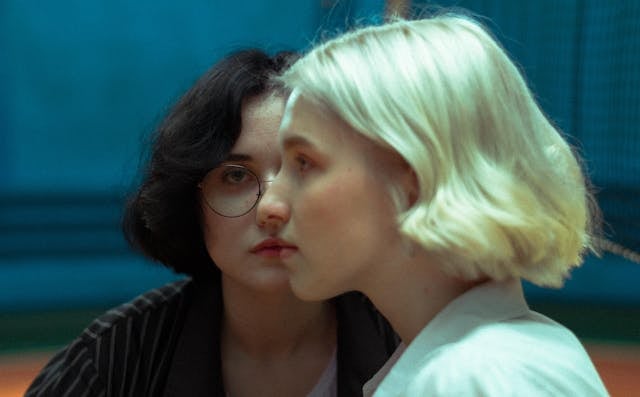I have a friend who is always there for the practical things, who will give you money if you need it, who has a good heart.
But when it comes to sharing something emotional with her, she defaults to magical thinking, which always frustrates me, or she clearly shows she has no capacity for holding space when there are painful emotions.
Sentences like “maybe you put out something negative in the universe,” or “you should just move on” don’t help when I feel heartbroken.
Most of her life, she was in healthy, long-term romantic relationships. But there have been in-between moments where she would meet unhealthy or avoidant partners and become completely obsessed with them.
Because of my job (I am a power and sex coach for women), a lot of people naturally talk to me about their personal problems. I don’t mind, to a certain extend. But she’d become so hyper-focused that she’d call every day to talk about her relationship, always with the same train of thought. She was suffering, so I’d invite her over for lunch just to hear again and again about what was happening.
One week I counted, and she talked to me for five hours about her relationship!
I started to find it incredibly draining, but I am an empath/sensitive being, so I wanted to help.
(When I talk about helping, I mean as a friend. I choose not to coach my friends, and if they want coaching, I orient them toward my colleagues.)
One day, when I went to get my boobs checked, the doctor said I had to come back for a biopsy because she found something suspicious. I was so surprised and confused that it took me 30 minutes to find my tramway stop in Bordeaux, which was five minutes away.
When my friend called me, I was crying. She asked, “What happened?” so I told her what the doctor said and explained that I was scared.
Her reply? “Oh that’s okay. You don’t have anything…I can feel it.” And then she went on for 45 minutes straight, word vomiting again about the same topic, while I feared that I had cancer.
That’s exactly what emotional dumping is. It’s unloading our emotional burdens onto another person, with zero consideration for their well-being and their nervous system’s capacity to hold our experience.
And it takes more energy for the receiver to process this dumping than it does for the emotional dumper to pay for our meal at a restaurant or lend us their car when ours breaks down.
But as usual, invisible labour is less valued than what can be measured.
I work mainly with women about many topics. But if there’s a common theme, it’s about being mindful and protective of their own vital force. It’s normal to support people we love, but we want to put up some boundaries when it comes to emotional dumping, otherwise it can become abusive.
So how do we know when this is the case? Well, we feel it in our body with a combination of these three elements:
They share little details about their life or relationship and want to interpret them as signs they will have the outcome they crave, like saying, “See, he looks at my Stories all the time so he must care,” or “I was reading about this movie and she told me she was watching it that day…we must be connected.” And you can tell they are waiting for you to confirm their interpretation, when from your perspective, these details mean nothing.
This generates a sensation of being used. And that makes you angry because this friend has put you in a place where you are torn between telling the truth or compromising your authenticity in order to not add to their pain or not have them angry at you for not understanding.
And then there’s a deep knowing that if you found yourself in the same situation, there’s no way this person would hold space for your pain. Or if they did, it wouldn’t be without trying to change your state of being by offering some quick advice to move on, a fun activity they can treat you to, magical thinking BS, or toxic positivity.
When this happens, I invite you to value your vital force.
I invite you to value the gift of being able to stay with someone who is going through painful emotions without trying to change how they feel just because it would be more comfortable for you if they felt better.
I invite you to value your capacity to stay in someone’s pool of dark emotions, just holding their hand and practicing compassionate listening.
Circling back to my story, first, I am lucky I don’t have cancer. But I also voiced a boundary to my friend that day. I told her, “It’s been months of you talking to me endlessly about your relationship. I’ve told you my take on it many times; it’s becoming repetitive and you stay stuck, so I invite you to talk to a professional because obviously it’s hard to shift your perspective by yourself.”
She said she understood, and while she wasn’t ready to see a therapist, she also doesn’t talk to me about this relationship anymore.
I value our friendship. I know she has a good heart, and I don’t feel the need to cut ties with her. I also know she can’t hold space for my challenging emotions, because she can’t hold space for her own and never had anyone who could model what that looked like.
I didn’t have this modeled for me either. But I worked on myself tons to be able to hold my darkness in order to process my challenging emotions and get out of compulsive thinking. When I “dumped” my emotional luggage, I did it with professionals in order to not pollute those around me.
In that moment, I reclaimed some of my vital force instead of dispersing it out to people I love who aren’t ready to do the work.
So many of us, especially women, work and show up in the world as “natural carers.” I invite you to care about yourself first and remain vigilant and protective when it comes to the invisible emotional labour that others might take for granted. I also invite you to ask for support when you struggle to put boundaries in place,
And if you’ve realized you are an emotional dumper, I invite you to notice when you start to push others away or overload your friends with your emotional baggage.
No judgment here—we’ve all been on one side or the other. And we can all bring presence to how we participate in healthy or unhealthy relationship dynamics in order to change it.
~


 Share on bsky
Share on bsky





Read 0 comments and reply